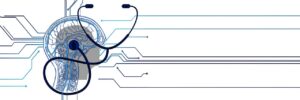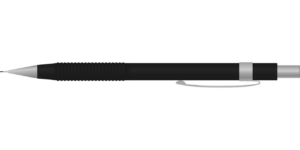La introducción a la psicobiología nos lleva a reflexionar sobre qué es la psicobiología y su enfoque hacia el comportamiento humano. En un primer momento, puede parecer una disciplina compleja y difícil de entender, pero no hay nada que la ayude más que saber que se basa en la idea de que el comportamiento humano es el resultado del interplay entre la neurociencia y las experiencias, incluyendo la genética y el ambiente. De esta manera, la psicobiología se convierte en un campo científico que busca entender cómo funciona el comportamiento humano a partir de criterios biológicos.
La psicobiología estudia los procesos mentales que rigen nuestro comportamiento diario, desde la sensación y la percepción hasta la memoria y las emociones. También explora los comportamientos básicos que nos impulsan, como la sexualidad y la reproducción, motivamos (alimentación, sed, etc.) y agresión, entre otros. Además, se entrelaza con otras disciplinas científicas para ofrecer un panorama integral del comportamiento humano.
Introducción
¿Qué es la psicobiología? Es una disciplina científica que busca entender cómo funciona el comportamiento humano a partir de criterios biológicos, explorando la relación entre el cerebro animal y el funcionamiento psicológico. Se basa en la idea de que el comportamiento humano no es un misterio, sino un resultado del complejo interplay entre la neurociencia y las experiencias, incluyendo la genética y el ambiente.
la psicobiología se enfoca en comprender el funcionamiento del cerebro humano y cómo se relaciona con el comportamiento. Es un campo interdisciplinario que investiga la interacción entre el ser humano y su entorno, buscando respuestas a preguntas fundamentales sobre la naturaleza de la mente y la conducta.
¿Cómo entender a las personas?
La psicobiología también se enfoca en comprender los procesos mentales que rigen nuestro comportamiento diario, desde la sensación y la percepción hasta la memoria y las emociones. Esto nos permite entender por qué respondemos de determinada forma ante estímulos o situaciones específicas. Al hacerlo, se pueden identificar patrones y tendencias en el comportamiento humano que, eventualmente, podemos utilizar para desarrollar estrategias y tratamientos efectivos para diversas condiciones.
Al estudio la psicobiología, se buscan las conexiones entre la actividad cerebral, el ambiente y los procesos psicológicos. Esto nos permite entender cómo nuestra anatomía y química cerebral se relacionan con nuestras emociones, pensamientos y comportamientos. Sin embargo, también es importante considerar que el ser humano no solo es una entidad biológica, sino que está influenciado por factores importantes como la cultura, el entorno social y los sucesos históricamente significativos.
La mente y el cuerpo: una intersección biológica
La psicobiología nos permite comprender cómo la mente y el cuerpo se relacionan de manera estrecha. Los procesos mentales, como la percepción, la memoria y las emociones, están estrechamente relacionados con la actividad cerebral y los sistemas nerviosos.
Por ejemplo, cuando experimentamos ansiedad o estrés, nuestro cuerpo responde con una respuesta fisiológica característica, como un aumento en el ritmo cardíaco, la liberación de cortisol o la tensión muscular. Al mismo tiempo, nuestra mente procesa esta experiencia y nos hace sentir de cierto modo. Entonces, es posible que creamos que estamos teniendo una reacción exagerada, pero en realidad, nuestro cuerpo está respondiendo a las señales dealerta biológicas.
La intersección entre la mente y el cuerpo se vuelve aún más compleja cuando consideramos factores como la genética, el entorno feto y el desarrollo temprano. Estos eventos pueden tener un impacto permanente en nuestro funcionamiento cerebral y psicológico, lo que a su vez puede afectar nuestra salud física y mental.
El impacto del ambiente en nuestro comportamiento.
La psicobiología nos permite comprender cómo el ambiente environmental influye en nuestro comportamiento y bienestar. El entorno jugar un papel crucial en la formación de nuestros patrones de comportamiento, ya que puede afectar nuestra química cerebral, la actividad cerebral y los procesos psicológicos.
Por ejemplo, la exposición a la luz natural puede influir en nuestro ritmo circadiano y nuestras emociones. De hecho, investigaciones han demostrado que la deficiencia de luminancia puede estar relacionada con trastornos como el síndrome del insomnio o la depresión.
Además, el entorno social en el que vivimos también tiene un impacto significativo en nuestro comportamiento. La interacción con otros seres humanos puede activar o desactivar sistemas de defensa en nuestro cerebro, lo que puede influir en nuestra salud mental y física.
La psicobiología nos permite comprender cómo nuestras experiencias ambientales, desde la infancia hasta la edad adulta, pueden dejar un sello permanente en nuestro comportamiento y bienestar. Al entender cómo el ambiente interacts con nuestros procesos mentales y cerebrales, podemos desarrollar estrategias para mejorar nuestra salud y bienestar a lo largo de la vida.
De los estudios de neurociencia a la psicología, una conexión.
La psicobiología también se enfoca en el estudio de la conexión entre la neurociencia y la psicología. Al entender cómo funciona nuestro cerebro y cómo se relaciona con nuestros procesos mentales, podemos desarrollar tratamientos más efectivos para trastornos neurológicos y psicológicos.
Por ejemplo, investigaciones en neurociencia han descubierto que las terapias basadas en la estimulación cerebral, como la terapia de estimulación magnética transcraneal (TMT) o la terapia de estimulación electroconvulsiva (TEEC), pueden ser efectivas para tratar trastornos como la depresión y el trastorno de estrés post-traumático (DEP).
Además, la psicobiología también se enfoca en el estudio de cómo las experiencias ambientales y los eventos traumáticos pueden influir en nuestros patrones cerebrales y comportamiento. Esto nos permitió desarrollar tratamientos más personalizados para ayudar a las personas a superar los efectos adversos de la experiencia.
La conexión entre la neurociencia y la psicología es clave para entender cómo el cerebro se relaciona con nuestra salud mental y física, y para desarrollar estrategias efectivas para mejorar nuestro bienestar.
La psicobiología como ciencia aplicada
La psicobiología puede ser considerada una ciencia aplicada, ya que se enfoca en la aplicación de conocimientos científicos y teóricos para resolver problemas prácticos y beneficiosos para la sociedad.
En este sentido, la psicobiología se preocupa por entregar soluciones auestiones como:
- Trastornos neurológicos y psicológicos: como la depresión, la ansiedad, el trastorno de estrés post-traumático (DEP), etc.
- Enfermedades crónicas: como la diabetes, la hipertensión, la enfermedad cardiovascular, etc.
- Problemas sociales: como la violencia, el abuso infantil, los delitos, etc.
La psicobiología también puede ser utilizada para:
- Mejorar la educación y el aprendizaje: mediante el entendimiento de cómo el cerebro funciona y cómo podemos utilizar estrategias efectivas para aprender.
- Mejorar la salud mental: mediante el desarrollo de tratamientos y terapias que se basen en la comprensión del funcionamiento cerebral.
- Fomentar la resiliencia: mediante el entendimiento de cómo el cerebro se adapta a situaciones estresantes y cómo podemos desarrollar estrategias para superar los desafíos.
La psicobiología es una ciencia aplicada que busca entender el funcionamiento del cerebro y la mente para mejorar la salud, la educación y el bienestar humano.
Ejemplos de estudio en psicobiología.
A continuación te presento algunos ejemplos de estudios en psicobiología:
-
Estudios sobre el papel del estrés crónico en la depresión: Investigadores midieron niveles de cortisol y examinaron patrones de comportamiento en individuos con depresión y controles sanos.
-
Influencia de la alimentación en la química cerebral: Estudios utilizaron técnicas como el espectroscopio de resonancia magnética nuclear (RNM) para analizar cambios en la actividad cerebral después de consumir alimentos ricos en grasas o azúcares.
-
El efecto del ejercicio en la formación de la química cerebral: Investigadores evaluaron cómo el ejercicio regular cambiaba la expresión genética y la actividad cerebral en animales, y compararon los resultados con humanos.
-
Estudios sobre la regeneración cerebral en trastornos neurodegenerativos: Investigadores utilizaron técnicas como la terapia de estimulación magnética transcraneal (TMT) o la terapia de estimulación electroconvulsiva (TEEC) para incentivar la regeneración cerebral en pacientes con enfermedades como la enfermedad de Alzheimer.
-
Estudios sobre el rol del sonido y la música en la formación de la química cerebral: Investigadores examinaron cómo la exposición a la música o el ruido blanco afectaba la actividad cerebral, la ansiedad y la depresión.
-
Estudios sobre la influencia del sueño en la regeneración cerebral: Estudios utilizaron técnicas como la electroencefalografía (EEG) para medir la actividad cerebral durante diferentes fases del sueño, y examinaron cómo el sueño afectaba la regeneración cerebral y la memoria.
-
Estudios sobre la relación entre la química cerebral y la creencia religiosa: Investigadores examinaron cómo las creencias religiosas influían en la actividad cerebral y en la salud mental, y evaluaron la relación entre la química cerebral y la bienestar espiritual.
-
Influencia del estrés parental en el desarrollo cerebral infantil: Estudios utilizaron técnicas como la resonancia magnética nuclear (RNM) para examinar cómo el estrés parental afectaba el desarrollo cerebral en neonatos y lactantes.
Estos son solo algunos ejemplos de estudios que se han realizado en psicobiología. La disciplina es muy amplia y tiene muchísimas oportunidades para explorar y investigar cómo la química cerebral se relaciona con nuestra salud, comportamiento y bienestar.
Conclusiones
La psicobiología es una disciplina que combina la psicología y la biología para entender cómo el cerebro funciona y cómo interactúa con nuestro comportamiento, emociones y well-being. En esta área de estudio, la investigación se enfoca en obtener conocimientos científicos y teóricos para resolver problemas prácticos y beneficiosos para la sociedad.
La psicobiología explora temas como el estrés crónico, la alimentación, el ejercicio, el sueño, las creencias religiosas, el estrés parental y muchos otros. A través de estudios experimentales y observacionales, los investigadores pueden comprender mejor cómo los procesos biológicos y psicológicos se relacionan entre sí y cómo pueden influir en nuestra salud mental y física.
La psicobiología tiene mucho potencial para mejorar la salud mental, reducir la enfermedad crónica, incrementar el bienestar espiritual y fomentar la resiliencia. Esta disciplina puede ser utilizada para desarrollar terapias efectivas, programas de prevención y estrategias de apoyo para ayudar a las personas a lograr mejoras en su salud y calidad de vida.
La psicobiología es una herramienta poderosa para comprender y mejorar nuestra salud mental y física, y podemos esperar que continúe juega un papel importante en el avance del conocimiento científico y en la mejora del bienestar humano.










